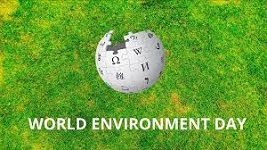June 5th marks World Environment Day, the United Nations’ principal vehicle for encouraging awareness and action for the protection of the environment. It is important to take stock of both the urgency of establishing a more sustainable global society, and the progress made in achieving this, according to Sunil Geness, Global Sustainability Lead for Africa at SAP.
“The pandemic has only served to emphasise the importance finding more sustainable alternatives to our current ways of work and life. In fact, scientists have warned that worse pandemics could emerge if we don’t find more sustainable ways of living that protect nature.”
Geness adds that sustainability in the modern context needs to consider an organisation’s economic, environmental and societal responsibilities, or the so-called ‘triple bottom line’. “Our current industrial age follows a model of ‘take, make, waste’, where more than 91% of raw materials are not reusable and therefore wasted. To create a future that is cleaner, greener and more equal than the world we live in today, we need to – as our global CEO puts it – “chase zero”: zero emissions, zero waste, and zero inequality.”
Positively, public awareness of and mass mobilisation behind sustainability has never been greater. A 2018 UN study found surging levels of momentum behind climate action, and highlighted the crucial role of non-state actors – such as private sector companies – in reducing emissions and reaching climate targets.
Call for organisations to lead by example
Geness says organisations have a leading role to play in creating and advancing sustainability. In fact, purpose-driven organisations with strong cultures of sustainability have the opportunity to act as both enablers or exemplars.
“Enablers provide products and services that meet the sustainability challenges faced by their customers,” explains Geness. “For example, Climate 21 is a software package that allows SAP’s customers to measure and analyse the CO2 emissions directly associated with individual products they offer in the market.”
The Ariba Network, the world’s largest business network that facilitates 5.3 million organisations to trade $3.75-trillion in goods and services each year, also provide greater transparency in enterprise supply chains. This enables organisations to make informed decisions over which of their suppliers prioritise sustainability and helps ensure it remains a key priority across the supplier base.
Geness believes that not every organisation can be an enabler, but every organisation can strive to be an exemplar. “Exemplars are organisations that lead by example in their own business operations and practices. Being an exemplar is increasingly important in talent attraction and retention. In an internal survey of SAP’s global workforce, 94% of employees believed it is essential for SAP to pursue sustainability to create positive impact.”
Although progress is sometimes slow, most countries have acknowledged the need to strive for carbon neutrality. The EU, for example, has set an ambitious target for net carbon neutrality by 2050. Here pioneering organisations have another opportunity to act as exemplars by achieving carbon neutrality targets. “In fact, there is scope to take bolder steps,” says Geness. “SAP, for example, has committed to become carbon neutral in its operations by 2023, two years ahead of its initial goal.”
Innovation addressing challenge of plastic pollution
The issue of plastic pollution has recently gained front-page prominence as the environmental impact of especially single-use plastics becomes clearer. According to the National Geographic, half of all plastic ever manufactured was produced in the last 15 years, and only 10%-15% of single-use plastic is recycled annually. Microplastics have also been found in fresh water supplies around the world, with as-yet unknown consequences for our health.
New initiatives to combat plastic pollution are giving hope. A new project piloted in Ghana between the World Economic Forum, Global Plastic Action Partnership, and SAP has increased visibility within the plastics supply chain and stand to benefit people, companies and the environment.
According to Geness, the project, which involves more than 2 000 Ghanaian waste pickers, aims to measure the quantities and types of plastic they collect, with data analysed and matched to market-related prices paid through the value chain locally and abroad.
“Organisations committed to sustainability can then pay a premium for socially responsible plastics, while waste pickers gain opportunities to earn fairer wages. The data generated by the project can also guide policy-makers as they determine optimal locations for building recycling facilities.”
Time running out for world’s sustainability efforts
The UN has called on countries, leaders and organisations around the world to do things differently, think differently, and act differently to bring us closer to a more sustainable future. In a recent call-to-action, the UN put forward three priority areas that will enable the world to recover and build more resilient, sustainable and inclusive societies, namely strong leadership, improved knowledge-sharing, and effective partnerships.
With a ballooning population expected to triple in size by 2100, and with high levels of climate change vulnerability, Africa is particularly vulnerable to the consequences of unsustainable and environmentally unsound practices.
“African enterprises that are in a position to be sustainability enablers should invest further in innovation and product development that can assist organisations, governments and citizens in their own sustainability efforts,” says Geness. “All organisations have a duty, however, to act as exemplars and embody the spirit of sustainability across all their practices.”
“As international diplomat Christiana Figueres once said, ‘the next eight to ten years is going to determine the quality of life for the next 100 to 200 years’. African organisations have a duty to prioritise sustainability to ensure future generations inherit a clean and liveable world where every person has the opportunity to build a bright future for themselves, their families and their communities.”

